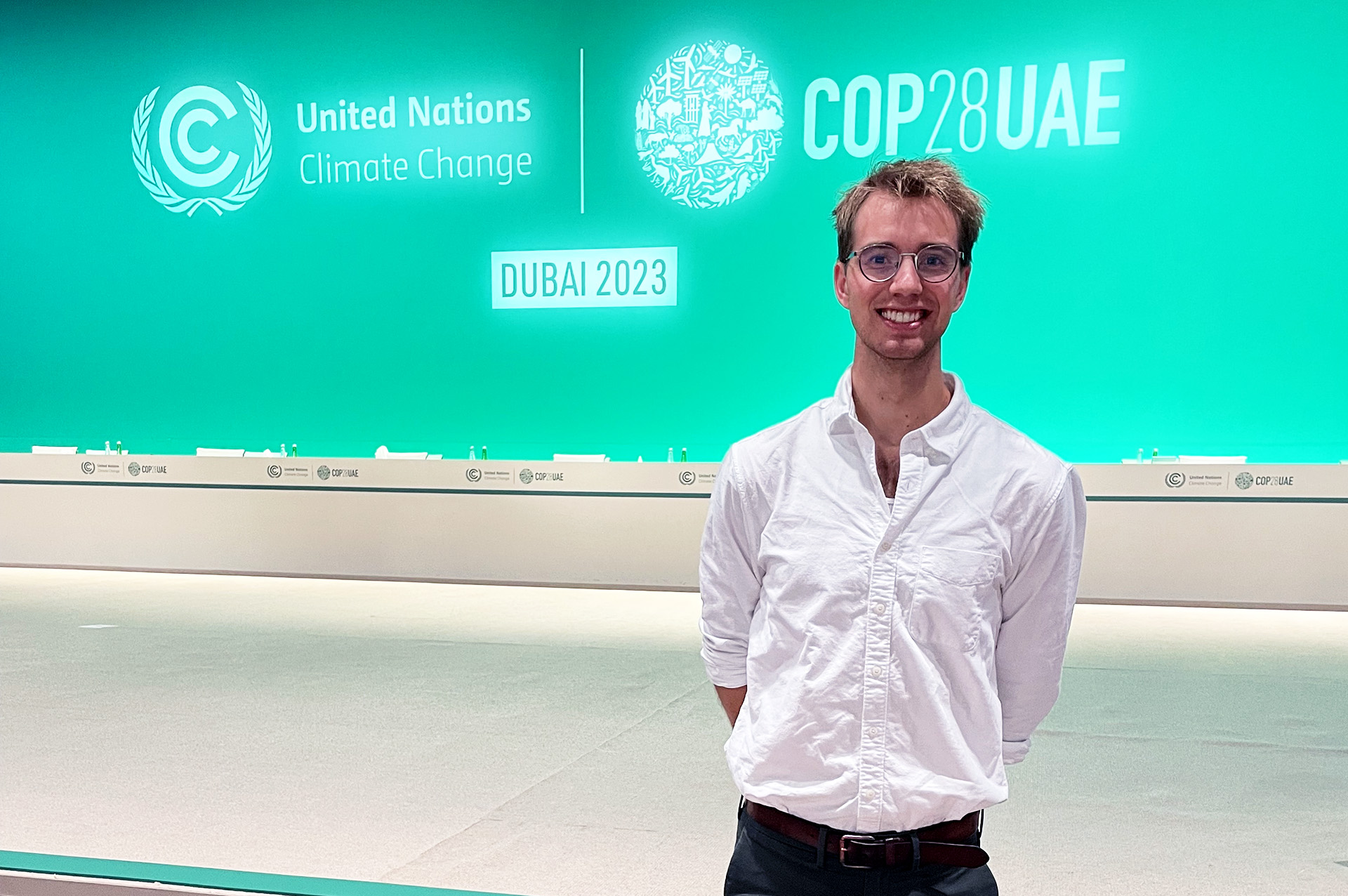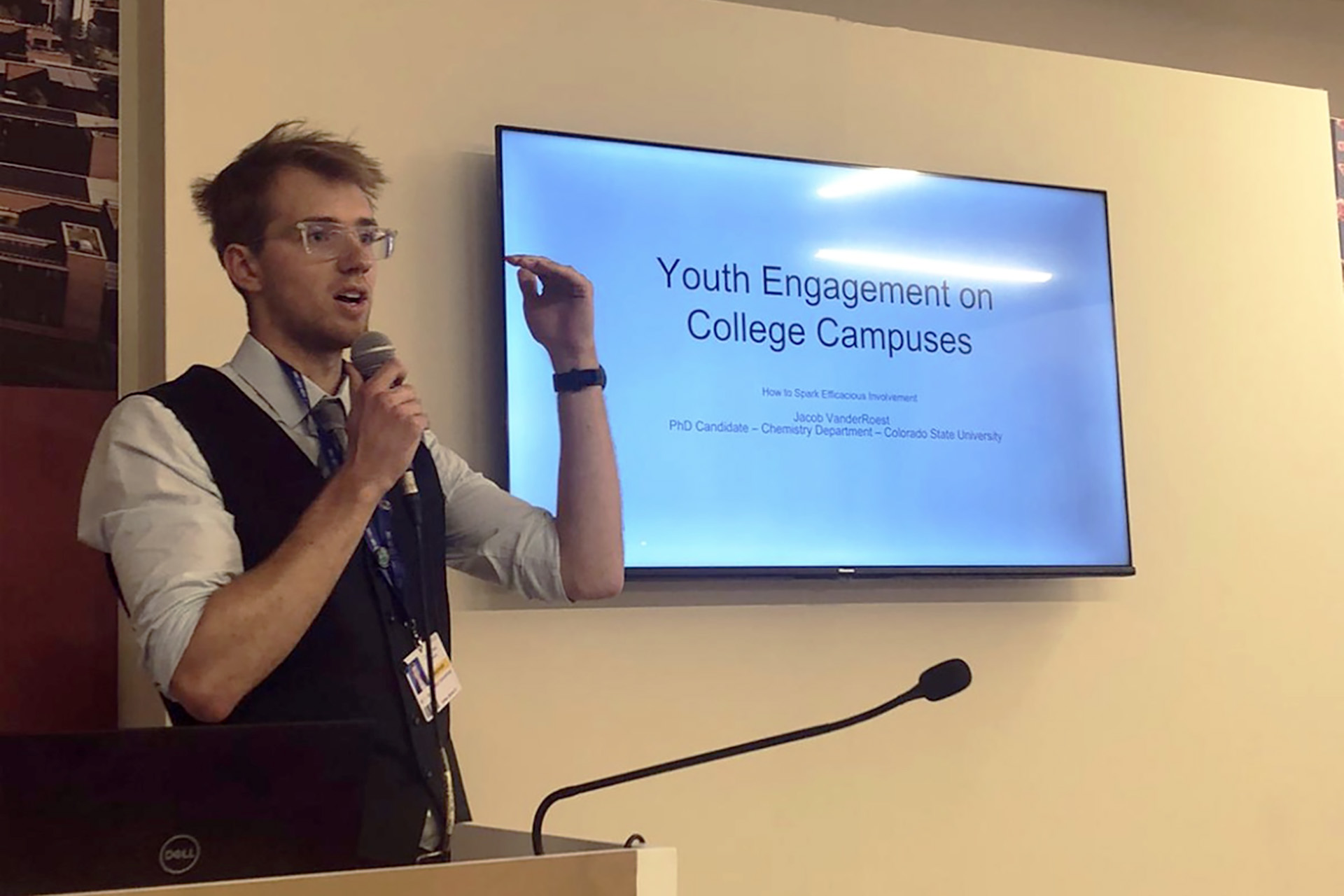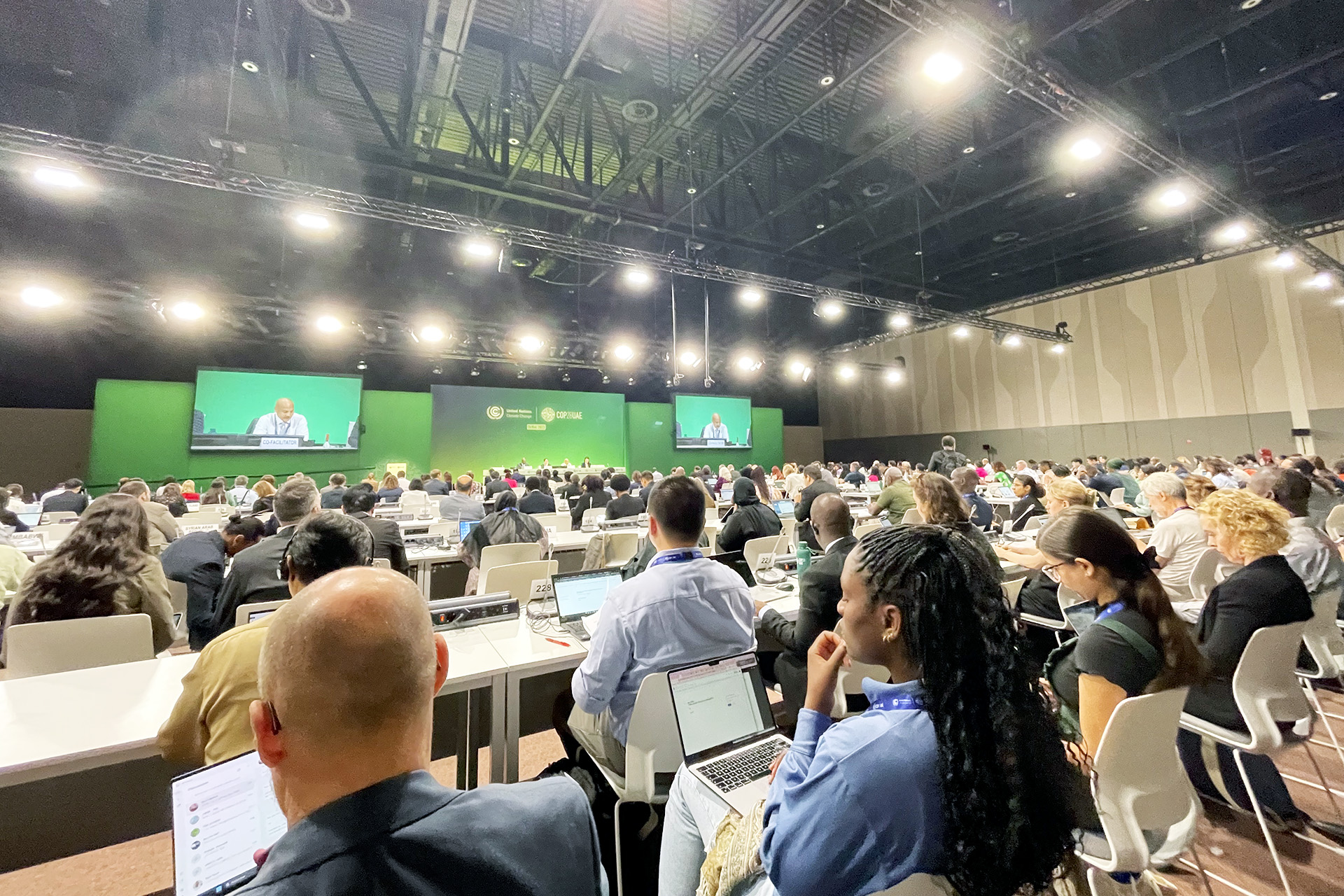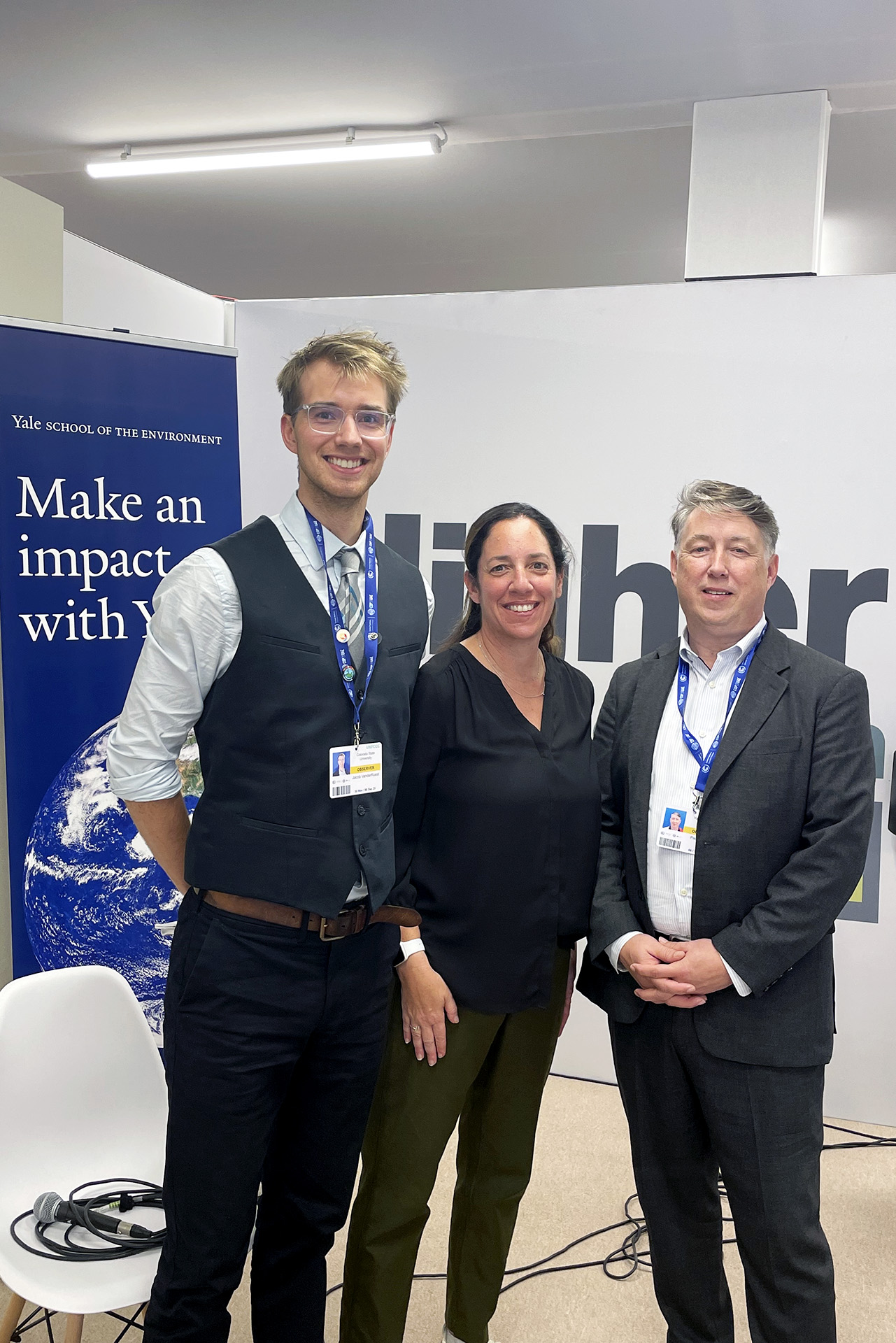
Jacob VanderRoest, a Colorado State University Ph.D. candidate in the chemistry department, was fascinated about how global climate negotiations took place at the COP28 in the United Arab Emirates. The conference ended in an agreement to “transition away” from fossil fuels.
As the only CSU student credentialed through the university (others could be credentialed by other organizations), VanderRoest attended the first week of the 28th Conference of the Parties to the U.N. Framework Convention on Climate Change in Dubai.
VanderRoest shared his impressions of the conference, his favorite parts, his experience with giving a presentation at COP28, and what universities could do to better address climate change challenges.
What are your key memories of COP28?
The United Nations Framework Convention on Climate Change was by far the most diverse environment that I have ever been in. For example, I attended a panel in which the moderator asked the audience of 40 people to raise their hand if they were from the United States, and only about three people raised their hands. I had never been in such a global environment, and that was very memorable.

What was your presentation and who was the audience?
I presented on how to effectively foster youth climate action specifically from high school and undergraduate college students. I have been working with youth climate action for about four years, and I shared what I’ve learned to make younger students’ efforts more effective and impactful. The audience for my presentation was a small group of early career researchers who were mostly graduate students. The main points of my presentation were that schools need to project a tone of hope and optimism when discussing climate action and help their students get involved in actionable, community-focused initiatives to make their immediate environment more eco-friendly.
What were the most enriching portions of COP28?
My favorite parts were the negotiations and the high-level talks. The negotiations consisted of a massive room (about the size of a gymnasium) full of representatives from dozens of different countries. Here the representatives would negotiate documents related to a wide variety of climate topics, such as climate finance and supporting developing countries. Witnessing the world literally come together to address climate change was very exciting! Additionally, I had the opportunity to attend talks featuring Al Gore, Hillary Clinton and John Kerry. They were stupendous speakers and delivered very impactful statements.

What should fellow CSU students know about this global climate change challenges?
I now have a much better understanding of how climate change is addressed on a global level. Witnessing global climate negotiations, in person, was very enlightening. Additionally, a lot of the conference focused on climate finance, which was a topic that I didn’t consider much nor knew much about prior to attending this conference. For my fellow CSU students, I will share the final message given by Hillary Clinton at the conclusion of her talk. She said that passion will only take you so far in combatting climate change. We need to make sure that we are diving deep into our respective fields of study and learn how we can most efficaciously address climate change. Having passion is important. However, if all of that excitement and drive is devoted towards an unproductive pursuit, then our collective impact will be minimal.
What should universities do better to prepare students for climate change issues?
Climate change is a very daunting and intimidating issue, causing many students to feel hopeless and cynical. Emphasizing climate solutions in the classroom would help energize and motivate students while dispelling the notion that this problem is too big to address.
Academically and professionally, what is next for you?
I just completed 2.5 years of my analytical chemistry Ph.D. program here at CSU (and working in Professor Thomas Borch’s biogeochemistry research lab). So, the next steps for me are to continue my studies and publish academic papers to graduate with my doctoral degree. Professionally, I intend to organize outreach events with CSU undergraduate students and local high school students to share my experience at COP28.
